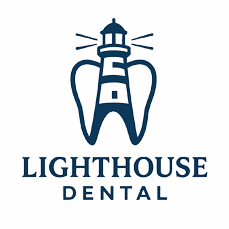A procedure that treats infected or damaged tooth pulp so the tooth can be saved instead of removed.




Welcome to Lighthouse Dental
Welcome to Lighthouse Dental, where your smile and overall health are our top priorities. Our dedicated team is committed to providing you with exceptional care and a comfortable, personalized experience at every visit.
We can’t wait to welcome you to our practice.
Insurance we accept
Discover our trusted insurance partners below, ensuring seamless transactions for your peace of mind.









Our Services What We Offer
Preventative Care
A deeper treatment done when routine cleanings have been missed and gum disease needs to be addressed.
Dental Exams
A quick treatment that uses tooth-colored resin to cover imperfections and create a smoother, more even smile.
Emergency Dental Care
A long-lasting solution for missing teeth using a secure implant placed in the jawbone topped with a natural-looking crown.
Root Canals
Dentures are often a difficult topic for people to discuss. It can be embarrassing for many patients to be able to talk with friends and family about their dental health and for these reasons, dentures may also be surrounded in your mind with a negative stigma.
Extractions
Fillings are one of the most common dental restorations, used to treat small areas of decay in the teeth. When you need a filling, the decay is drilled out and cleaned so that there is no remaining bacteria, before the hole is filled using a filling.
Fillings
Parenting has many responsibilities, with one of the most important being teaching your children how to care for themselves. One important aspect of that care is the importance and practice of looking after one's teeth.
Clear Aligners
A smile is one of the simplest gestures that we can make, but it can also be one of the biggest. A bright smile is considered a reflection of friendliness, honesty, happiness, and health.
Lighthouse Dental Meet Our Doctors

Dr. Ryan Koster, DDS
Dentist

Dr. Mark Velemirovich, DDS
Dentist
Testimonials Read Our Reviews

Nicole G.
Jess K.
Linda G.
Nickie G.
Bridgette F.
Selena C.
Hours of Operation
- Monday 8:30am - 5:30pm
- Tuesday 8:30am - 5:30pm
- Wednesday 8:30am - 5:30pm
- Thursday 8:30am - 5:30pm
- Friday 9:00am - 4:00pm
- Saturday 9:00am - 4:00pm
- Sunday Closed
© 2025 Lighthouse Dental. All rights Reserved - Accessibility Statement - Privacy Policy - Sitemap

